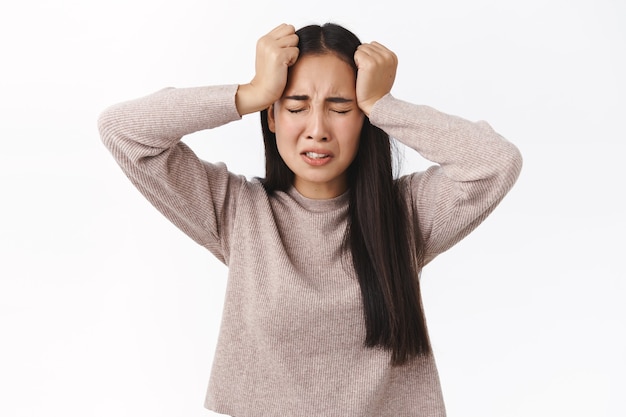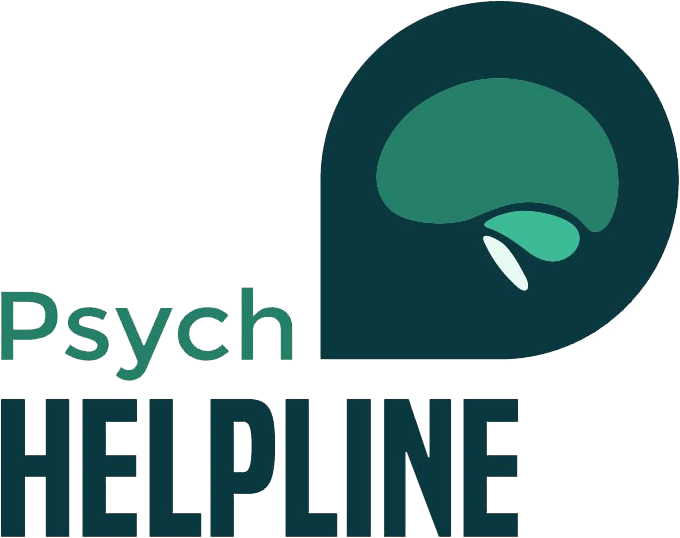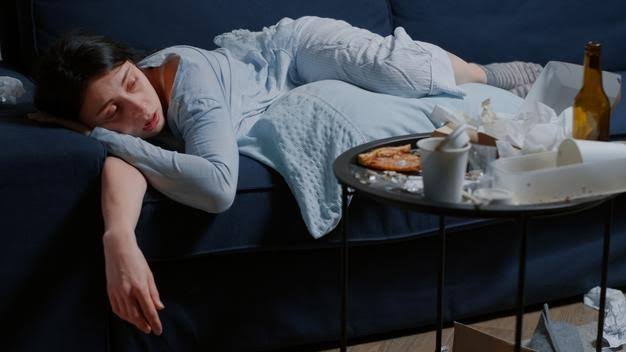Table of Contents
Depressive episodes can cause a sensory meltdown and diminish your ability to swiftly perform so many functionalities. Residing with someone who’s going through a depressive episode is an extremely tricky thing. Their recovery partially depends on the interactions you’re holding with them. Consequently, you’d want to be extra careful about how you act or talk around them. According to a survey;
Nearly 7% of adults in the United States experience at least one major depressive episode each year.
A period of depression that lasts at least up to 2 weeks can be regarded as a depressive episode. On average these episodes can last for up to 2 weeks to 3 months. Based on its severity, a depressive episode can be labeled as a major or minor one. On average women with a previous history of mental illnesses are more likely to experience depressive episodes at least once in their lives. Some other major causes behind depressive episodes include; psychological stress, undealt trauma, dysfunctional childhood, genetics, brain chemistry, drugs or alcohol abuse, etc.
Dead Giveaways: 12 Signs You or Someone You Know Could Be Having A Depressive Episode
- Change in eating habits and patterns is another very evident sign. Someone having a depressive episode might skip multiple meals or indulge in eating more than usual.
- Change in sleep patterns e.g. oversleeping, struggling with insomnia
- Lack of concentration e.g. inability to focus during class etc.
- Lack of self-worth and increase in self-hatred
- Showing lack of interest in the activities and hobbies that used to appeal to them
- Suicidal tendencies or sudden infatuation with the idea of dying
- Self-harm or self-mutilation
- Someone experiencing a depressive episode might get angry and frustrated very easily
- During a depressive episode, people tend to become more reclusive e.g. missing out on classes or any chances of socialization
- Lack of energy and constant restlessness are both dead giveaways
- Constantly feeling hopeless about the future and indulging in negative thinking patterns
- Noticeable weight loss or weight gain
6 Ways You Can Effectively Survive A Depressive Episode
Commence On Your Self Care Journey
Your self-care journey shouldn’t begin right at a critical moment. Instead, maintaining a lifestyle that’s better for your overall wellbeing should be in practice right from the beginning. In this way, during a depressive episode, you don’t struggle with burnout or look for ways to soothe you down, they’ll already be in practice. Being in denial about your depression and its symptoms goes against your self-care journey.
Acknowledge its presence and then take steps to reduce its impact. You can keep a chart to regularly analyze your mood and emotional highs/lows. Rate your everyday mood based on the positive and negative energy you are experiencing that day. If the bad days are starting to dominate the good ones simultaneously, then don’t take your chances.
If you’re taking time off to relax you can overpower any depressive episode. Don’t panic and take on more tasks. Even though it might seem like taking on more workload or house chores would make you stronger, the reality is quite against that. Use your time off from responsibilities to charge your spirit with positive energies. Eat well, drink well, carry out plenty of exercises and surround yourself with the right kind of people.
Accept Its Presence
Although a treatment plan and pharmaceutical drugs can alleviate the symptoms, depression can never entirely diminish from one’s life. Depressive episodes come and go ever so often which is why accepting their presence can open doors towards healing. During each episode, it’s normal if you feel like this would be the end of you. It’s a tiresome experience that will try to squeeze out every inch of hope from you. But accepting the onset of depression as an episode will make you accept the fact that this won’t last forever. In due time, everything will return to its normal state. So, hold conversations with yourself and analyze the way you view your mental illness. Reassure yourself when you get overly frustrated and angry during depressive episodes because only then you can tolerate these temporary woes.
You’ve Got To Reach Out
Suicidal thoughts can be quite the norm during a depressive episode. You’ll be amazed to witness how even the smallest inconveniences can send you spiraling down into a dark hole of despair. When you find yourself requiring some emotional support lean on the people you consider the closest. Furthermore, reach out to your therapist in due time to discuss how you might be struggling with suicidal tendencies. In dire circumstances, keep the number of a national suicide hotline in your reach. Talking to a representative of such hotlines can be of great help until you get in touch with a mental health professional.
Keep Your Cool
There’s nothing much scarier than breaking your happy streak. If you haven’t had a depressive episode in a while, you might be feeling more strong and emotionally grounded as compared to the past. It feels good to be living in the moment like other folks around you when that ting of sadness doesn’t haunt you 24/7. That’s why it’s so hard to not panic and to accept the fact that you’ll have to go through it all over again. This is the most critical point of a depressive episode. At the very beginning, you must compose yourself emotionally and fight the urge to have a meltdown.
Panicking at this very moment can take away the strength you have inside you. Lean on yourself and the people close to you for support instead of abandoning all hope. Manifest a much calmer future that awaits you after this episode ends. Vocally announce to yourself that you’ve got everything under control and you’ll survive these tides. You need to be more composed instead of a panicked one to consider helpful resources and healthy coping mechanisms.
Alter The Definition Of A Depressive Episode
How do you define depression? Perhaps you might view it as a personal defect like others in the same situation as yours do. It’s so tempting to pin the fault on yourself. It can be quite tiresome when you can’t interact, socialize or live your life as smoothly as people who don’t have depression. That’s why you’re extra hard on yourself because the entire experience is just so frustrating. Depression is an illness just like any other physical illness you might’ve encountered in the past. So instead of viewing it as a personal flaw, view it as something you had no control over like any other common cold or flu. Keep a journal entailing all the positive parts of your life. Keeping things like these around you in advance serves as a reminder of the things you’ve archived despite having a life-altering illness.
Recognize The Dead Giveaways
Settle down, and take a walk down memory lane. If you’ve had plenty or even a few depressive episodes in the past, jot down the things that caused your symptoms to flare up. For instance; some individuals feel that being in a hectic or perhaps toxic environment triggers them real bad. Similar is the case for those whose depressive episodes often stem from overthinking about their lackings. Once you point out these triggers on your own, you can catch yourself in the act. Additionally, you can take measures to avoid these triggers or talk to a therapist in due time before a full-blown depressive episode.
How To Help Someone Going Through A Depressive Episode?
- If you’re trying to bring up the idea of professional mental assistance, then bring it up more gently. This is a tricky subjective and someone going through a depressive episode will be extra sensitive about it. Being extremely intrusive or assertive should be a big no-no as a person’s willingness to seek help matters more. Additionally, you can suggest a residential care facility if original therapeutic measures haven’t garnered satisfactory results.
- Talk and inquire! If there’s one piece of advice you should take away from this article, then this is the one. If your spouse or any other close relatives going through similar events, then you can aid their recovery by being more present. Talking your way into assisting them is a great idea. Ask that particular individual whether he/she requires any assistance carrying out house chores. Accompany them during their runs to a local counselor if they feel calmer when you’re around. Make sure you’re not trying to be overly helpful when they’ve clearly asked you to stop. Give them space if that’s what they need instead of continuously inquiring about their wellness.
- If your partner struggles with hazy memory or fails to remember certain instances about their condition you can state their symptoms by mentioning the changes you’ve noticed.
- You’ve got to alter some of your habits to make more space for your partner or siblings’ wellness during a depressive episode. Avoid drinking, smoking, or indulging in any similar activities if that particular individual is known for using these methods for unhealthy coping. You do not want to incite that same urge in them, especially during such a critical stage.
- If you’re around someone who seems to be having a depressive episode, he/she is more likely of having suicidal urges. Suggest helpful resources and get in contact with relevant authorities if there’s fear of life endangerment on their end. The following risk factors amp up the chances of having suicidal thoughts during a depressive episode; a traumatic inconvenience, lack of familial support, racist or homophobic encounters/lack of acceptance, a previous history of suicide or self-harm, lack of reasons to be alive, a bad breakup/divorce, death of a dear one, etc.
- If you’re noticing early signs of an onset then let it be known. Perhaps that particular individual might not be noticing the things you are noticing. Recognizing these signs can help your partner or friend in getting immediate assistance. For instance; noticing how the eating and sleeping patterns have altered quite recently, etc.
- Do not act judgmental. During a depressive episode, people turn extra reclusive. So if someone you know is sharing how they feel with you even in that critical stage, your negative responses can shut them down even further.
- Reconsider the things you’re uttering to them or uttering in front of them. If you’re being supportive, don’t try to ask them for any compensation later on. This can make them feel even more unworthy. Show your support by vocally offering reassurance; “your feelings and the way you are acting is absolutely justified”, “you are not crazy” etc.
- Encourage them to speak up about the way they feel if they’re comfortable.
- If you’re around someone who’s showing interest in outdoor activities then accompany them. Don’t let them land into permanent reclusiveness by accompanying them on a short walk, during a grocery run, or a mild jog session.
- The lack of energy or being in a disoriented stage can hinder one’s urge to seek help. Someone who hasn’t had many depressive episodes in the past is less likely of seeking professional help in dire circumstances. The constant feeling of worthlessness can even coerce them into not demanding any external help or support. That’s why you can lend a helping hand by recommending helpful resources. Help them find a good therapist and you can go as far as consensually booking an appointment for them if it’s required.

Final Words
If you’re struggling with a depressive episode, don’t struggle in silence. Don’t let this illness overpower you because the symptoms will soon fade away with a decent amount of self-care and professional help. If you or someone you know is struggling with suicidal tendencies do not shy away from contacting relevant authorities. You’ll be your partner, friend’s, or guardian’s biggest cheerleader during a major meltdown like this. So, carefully reconsider your words and your actions before they land out in the open.







